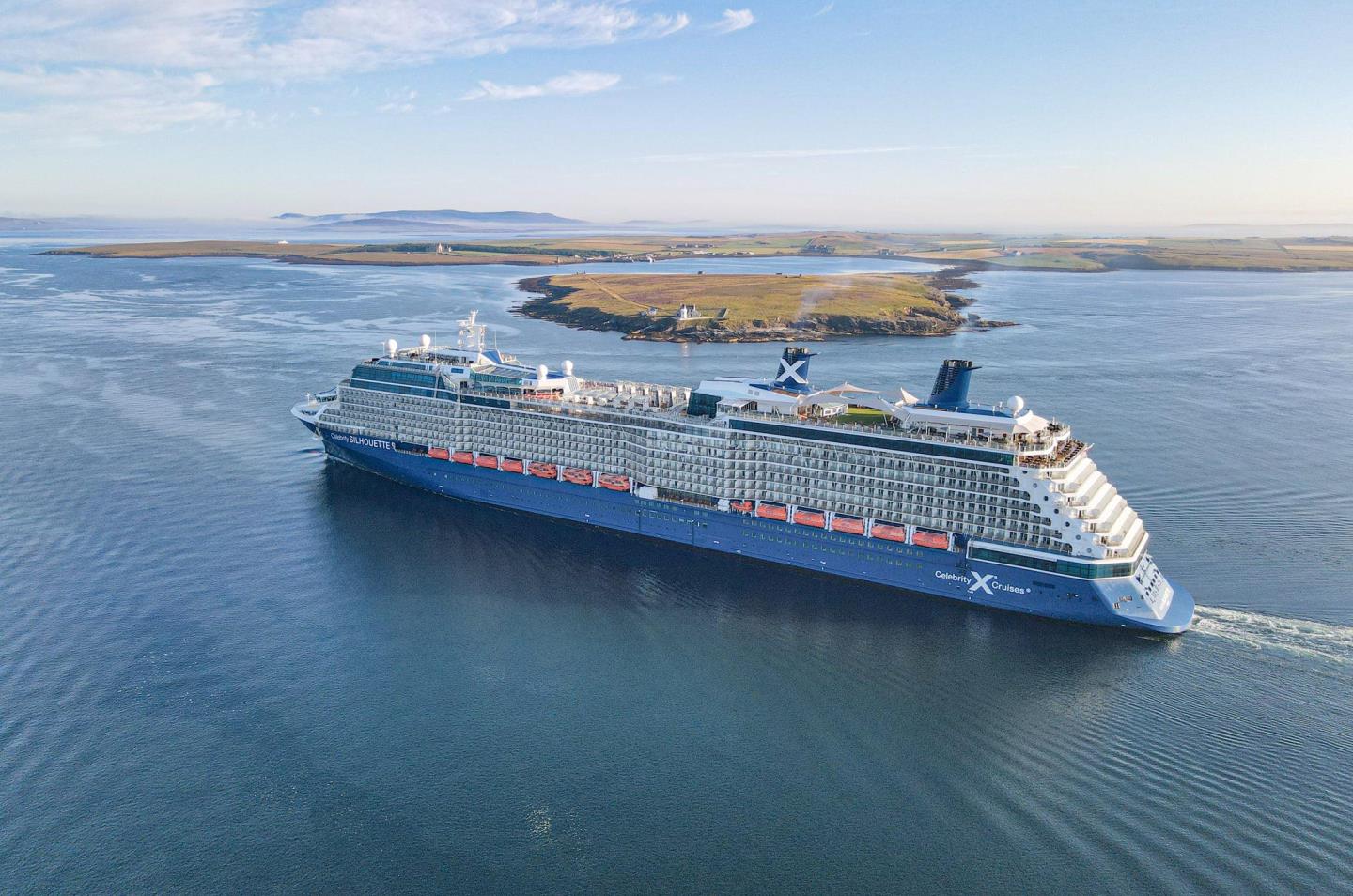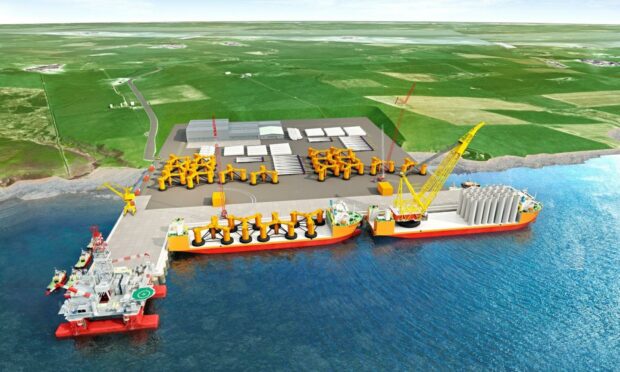Orkney Harbours are starting a £230 million transformation. Here are five ways it’s changing for the better and looking towards a greener future.
As Orkney Harbour Authority unveiled its updated Masterplan earlier this year, the focus was made clear – to move the harbour (and wider industry) towards decarbonisation.
The transformation of the harbours will help build towards a more sustainable, greener future, to help the country as a whole meet its climate change targets.
Paul Olvhoj, Business Development Manager at Orkney harbour, said: “We know what we have to do, we know what the net zero targets we have to achieve, whether they’re from the Government or Orkney Islands Council, which we are part of.
“Sticking to those targets puts us in an interesting position, because our industry needs innovative technological advances to power deep sea ocean-going vessels with cleaner fuel.
“We have to set up base infrastructure, so we can make the most of that innovative technology when it comes online.”
Here are five ways the Masterplan embraces Orkney harbour decarbonisation and sustainability:
1. Orkney is ready to support ScotWind offshore wind development
The harbour authority wants to put Orkney at the centre of offshore wind development, capitalising on the opportunity provided by the harbours’ location.
The harbour transformation will put in place infrastructure to support schemes like the ScotWind round of offshore wind development.
Paul says: “If we build the right facilities we can support ScotWind and future renewable energy projects, so Scotland can be powered by green energy.”
2. Making the most of natural assets and improving infrastructure

Phase 1 of the transformation will focus on taking full advantage of the unique geographical advantage and natural characteristics of Scapa Flow.
As the largest natural deep-water harbour in the northern hemisphere, there is lots that can be done here to support emerging renewables industries. This includes assembly, installation, marshalling, operations and maintenance activities associated with offshore wind, and a Future Fuels Hub for storage and distribution of transitional and green fuels.
For example, the harbour can play a vital role in exciting new projects like the Flotta Hydrogen Hub, which will develop a large scale green hydrogen facility in Orkney.
Work on Scapa Deep Water Quay is now underway, with site investigations started on land and at sea. Orkney Harbour Authority has a deal with Crown Estate Scotland (responsible for the sea bed) to work together on the project.
3. Looking after jobs now and in the future
While the Masterplan is embracing and moving towards greener energy, oil and gas still play a significant role in the islands’ economy.
To manage the transition, Scapa Deep Water Quay will have the capability to accommodate semi-submersible platforms. This will give Orkney a competitive edge within the existing oil and gas market.
Paul said: “The Masterplan was initially founded to answer the question of what happens when oil dries up, because that’s a large part of our islands, so now we’re supporting the diversification of the oil industry.
“That means supporting the jobs that exist now, whilst also looking to future careers. Research suggests that the Masterplan with create as many as 115 new jobs, as well as substantial job opportunities during construction.”
4. Working with Orkney and key players to develop the supply chain

Key players in the harbour were consulted during the creation of the Masterplan, with the goal being to continue working with relevant partners to develop the supply chain in Orkney.
This will help to ensure that offshore wind benefits the whole area and the local economy, creating skilled jobs and supporting local suppliers so that they can get involved in future offshore projects.
A recent proposed ScotWind partnership involving Orkney Harbour Authority and Fred Olsen Renewables is proof of this commitment.
5. Managing the environmental impact along the way
The goal of Orkney harbour’s development is decarbonisation. The authority wants to lead the way and support a move towards carbon-free shipping and ports.
But of course, the infrastructure work will have an impact on the environment. To help minimise this, the harbour authority is undertaking a series of species surveys and environmental studies.
And the hope is to offset any impact through habitat reinstatement and enhancement.
Find out more about the Orkney Harbour Authority Masterplan and read the latest harbour updates.
